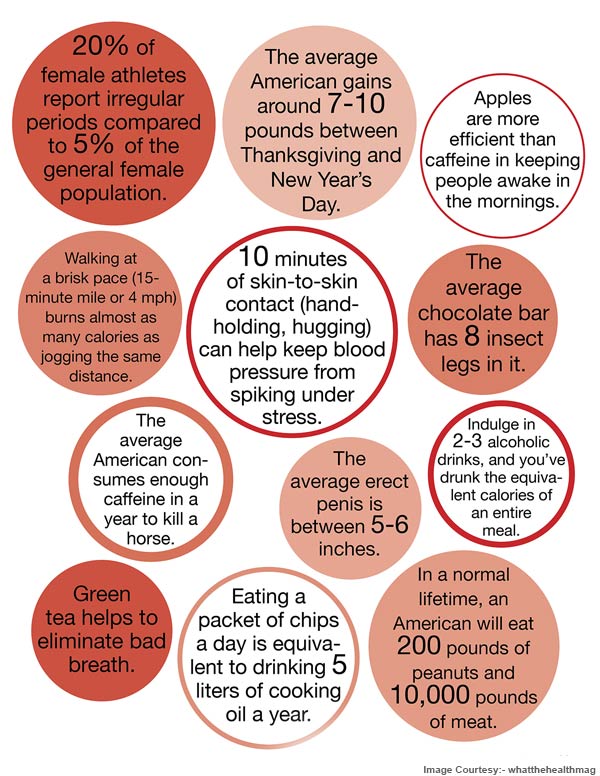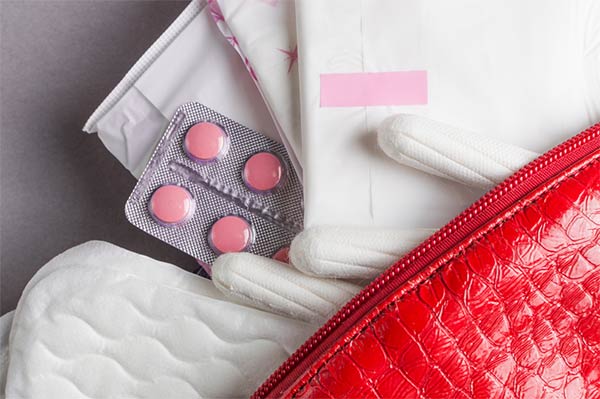Are you asking yourself: why did I get my period twice in one month? Do I have irregular or regular periods? If I have abnormal periods, what can I do about it?
This article can help you understand what you are experiencing in your menstrual cycle, and whether or not you have reasons to worry about your health or fertility.
So, is getting your period twice in one month considered normal? Continue reading to find out the answer to your questions!
1.Regular Vs. Irregular Periods

Women’s normal menstrual cycles vary greatly in duration and length. Your cycle begins once a period starts and ends on the first day of the next period.
It is controlled by many different hormones and is an essential function of the female body, according to Dr. Sherry Ross, Women’s Health expert and OB-GYN from Providence Saint John’s Health Center in California.
The typical cycle lasts for 28 days but can be anywhere between 21 to 35 days for adults or 21 to 45 days in teenagers.
Dr. Ross adds that your period starts when you are about 11 or 12 years old, lasts as long as two to seven days, and continues until your menopausal stages.
Each woman is different, however, and your cycle can change every month. In some months, your cycle may last for fewer or more days, and start earlier or later than the previous month. As long as you get your periods consistently in approximately the same time period in between, that means you have a regular cycle.
What’s considered irregular is when your bleeding patterns deviate from what is normal for your previous menstrual cycles.
Irregular periods can be too late or too early, very heavy to almost nonexistent, and painful or pain-free, as long as it differs from your usual periods. If you usually don’t get PMS, your period is also irregular when you suddenly get headaches, heavy cramps, or bloating.
In many women, irregular periods can even mean missing a period (amenorrhoea) or having two periods in a month (metrorrhagia).
2.Having a Period Twice In a Month: Is That Normal?

Having your period twice a month can still be considered normal. That is if you have shorter menstrual cycles. Therefore, you can have a period at the very beginning of a month and get another towards the end of the same month. In this case, getting your period twice in one month means nothing.
Most women get 13 periods in one year, which means they have two periods in at least one month. However, if your bleeding is outside your normal cycle and occurs in between normally scheduled periods, this may be a subject for concern.
Another pressing question that you could be asking is: does getting your period twice a month means you’re pregnant? Technically, you won’t get a period if you’re pregnant. However, spotting or light bleeding can normally occur during pregnancy. You should consult your doctor if you know that you are pregnant and are having any bleeding.
3.Reasons Why You Could Be Having a Period Twice In One Month

So what causes menstruation twice a month? Irregular periods can cause you to get a period back to back with another. Here is a list of possible reasons that lead to irregular periods.
- Polycystic ovary syndrome (PCOS) that causes hormonal disorder in the ovaries.
- Premature ovarian failure where your ovaries lose function before you reach 40.
- A pelvic inflammatory disease which infects your reproductive organs.
- Uterine fibroids or non-cancerous growths inside the uterus.
- Extreme weight gain or loss
- Eating Disorders
- Intense physical activity or exercise
- Pregnancy or Breastfeeding which can delay regular periods
- Physical, mental, or emotional stress, which, according to board-certified OB-GYN Dr. Carolyn C. Thompson, can cause your system to shut down.
- Thyroid disease or problems like hyperthyroidism or hypothyroidism which can cause missed or extra menstruation.
- Birth control pills– Some women experience their period twice a month on birth control due to the body’s adaptation to the hormones.
- Onset of menopause
- Some sexually transmitted diseases that may cause bleeding and other discharges
- Miscarriage can lead to heavy bleeding similar to a period
Related:- CAN YOU GET PREGNANT RIGHT AFTER YOUR PERIOD? KNOW ALL ABOUT IT
4. Risk Factors And Reasons To Call Your Doctor

When other symptoms accompany frequent periods, it can mean that you have a more serious condition. Consult your doctor if you experience any of the following:
- Periods lasting longer than 7 days
- Menstrual cycle that lasts less than 21 days or longer than 35 days
- Bleeding between periods
- Feeling sick and feverish after using tampons
- Not getting your period for more than 90 days even if you’re not pregnant
- Heavy bleeding that soaks pads or tampons in less than two hours
- Regular periods that suddenly become irregular
- Extremely painful cramps
5. What You Can Do To Avoid Irregular Periods Or Two Periods In One Month

Your lifestyle greatly affects your reproductive and overall health. To ensure that your body is in the proper balance, the following tips can help:
- Load up on fruits and vegetables. These provide you with iron and vitamin C that is lost due to heavy bleeding. Eat green leafy vegetables like broccoli, spinach, Swiss chard, and also plenty of citruses.
- Keep yourself hydrated. Drink at least eight glasses of water daily to allow your body to flush toxins and wastes properly.
- Track your periods. Keep a calendar or a detailed journal that tracks the dates, heaviness, and frequency of your periods. This will allow you to identify irregular period patterns.
- Engage in gentle, regular exercise. Perform gentle workouts every day such as walking, calisthenics, or stretching routines. Restorative yoga can also help reduce PMS and relieve tension, stress, and cramps.
- Take herbal remedies like jaggery, ginger, aloe vera, and sesame seeds that mildly help in regulating hormonal imbalance.
- Hormone therapy can also be prescribed by your doctor to regulate your hormones and possibly treat thyroid problems.
Having your period twice in one month is generally normal. To maintain this and avoid irregular periods, follow the given tips. However, if you suspect something wrong or serious, it’s best to contact your doctor immediately.
“Hope you find the post helpful and we are excited to hear what you think of it!”






